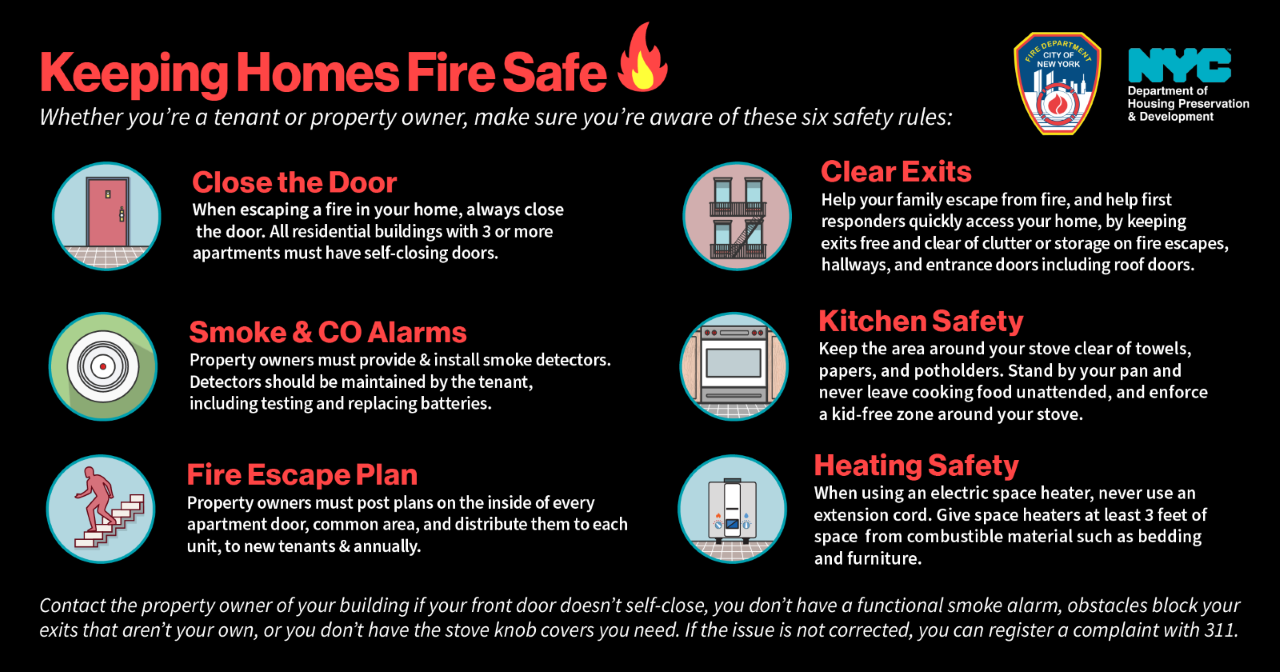As part of a News 12 Investigates story, Katelynn Ulrich reached out to the New York City Department of Housing Preservation and Development to discuss recent legislation passed on self-closing doors and fire safety.
Below is a response from their spokesperson:
Regarding legislation:
- A lot has changed related to the city’s laws and enforcement around self-closing doors in the aftermath of the Twin Parks fire.
- Both Mayor Eric Adams and the City Council have shown their leadership in wrapping their arms around the self-closing door issue – signing Executive Order 12 in March and writing and passing Intros 105 and 212 in May to ensure our residential buildings are safer from the spread of deadly fires.
- Both HPD and the Fire Department are working closer together than ever to improve our inspection training protocols, increased data sharing, and educational efforts to equip New Yorkers with the knowledge they need to keep their homes safe from starting and spreading fires.
- In addition to the legislation, now in buildings where HPD issues a self-closing door violation, we post a notice in the building informing tenants that an inspection was conducted in their building and HPD issued at least one violation because an apartment entrance door or a common area door did not properly self-close after being opened.
- This notice encourages tenants to call 311 to file a complaint if their door also is not self-closing.
- Altogether, these efforts make our city and our apartments a safer place to live and raise a family.
Regarding important fire safety information to share with the public:

- We’ve learned a lot since the Twin Parks fire and our city is in a safer place thanks to new laws, stronger enforcement, and more educational efforts
- We want to encourage New Yorkers to be aware of fire safety rules to ensure their own and their neighbors’ safety.
- Whether you’re a tenant or a property owner, here are some of the most important things to keep in mind about fire safety:
- When escaping a fire in your home, always close the door.
- All residential buildings with three or more apartments must have self-closing doors.
- Ensure for smoke detectors in your apartment are properly working by testing and replacing batteries as necessary.
- Property owners must provide and install smoke detectors
- Have a fire escape plan, and make sure everyone in your household knows where to go in case there is ever a fire. Depending on whether your building is fire-proof or not will help you determine if you should evacuate or shelter in place.
- Property owners must post plans on the inside of every apartment door, common area, and distribute them to each unit, to new tenants and annually.
- Never use an extension cord to provide power to an electric space heater and give space heaters at least 3 feet of space from combustible materials such as bedding and furniture.
- Keep the area around your stove clear of towels, papers, and potholders
- Enforce a “kid-free zone” while cooking and ask your property owner to install stove knob covers if needed.
- Stand by your pan and never leave cooking food unattended
- Keep exists clear of any clutter or storage on fire escapes, hallways, and entrance doors including roof doors.
- Contact the property owner of your building if your front door doesn’t self-close, you don’t have a functional smoke alarm, obstacles are blocking your exists that aren’t your own, or you don’t have the stove knob covers you need.
- If the issue is not corrected after contacting your property owner, you can register a complaint with 311.
Click here for more info.
Click here for a copy of the certification of correction letter (slide six).
If you would like to see what violations are issued in your building, visit the HPD violations lookup here.
More from News 12
1:24

Bronx mother killed in Highbridge apartment fight; 2 face murder charges
1:52

Freezing and windy through New Year’s Even in The Bronx
1:46

6 suspects sought in Allerton fatal shooting of 15-year-old
1:43

Dried blood, drugs and filth: Inside the stairwells at the Mitchel Houses
0:53

9/11 Health Watch urges incoming Mamdani administration to release toxin records
2:13
